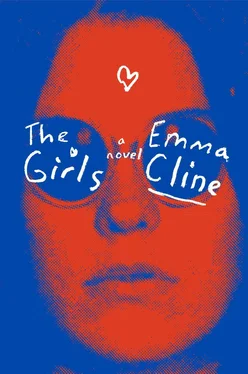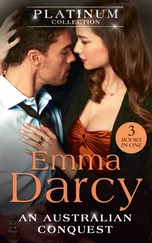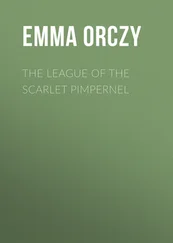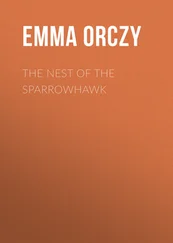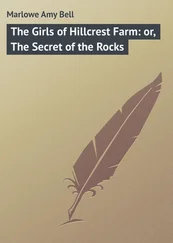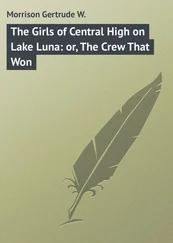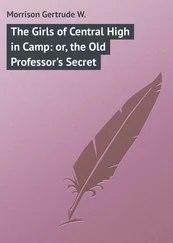“Mitch did a recording session with Russell,” Donna told me. “Russell blew his mind.”
There it was again, their wonder at Russell, their certainty. I was jealous of that trust, that someone else could stitch the empty parts of your life together so you felt there was a net under you, linking each day to the next.
“Russell’s gonna be famous, like that, ” Helen added. “He has a record deal, already.” It was like she was recounting a fairy tale, but this was even better, because she knew it would happen.
“You know what Mitch calls Russell?” Donna spooked her hands dreamily. “The Wizard. Isn’t that a trip?”
—
After I’d been at the ranch a while, I saw how everyone spoke of Mitch. Of Russell’s imminent record deal. Mitch was their patron saint, sending Clover Dairy shipments to the ranch so the kids could get calcium, supporting the place financially. I wouldn’t hear the whole story until much later. Mitch had met Russell at Baker Beach, at a love-in of sorts. Russell attending in his buckskins, a Mexican guitar strapped to his back. Flanked by his women, begging for change with their air of biblical poverty. The cold, dark sand, a bonfire, Mitch on a break between records. Someone in a porkpie hat tending a pot of steamed clams.
Mitch, I’d learn, had been having a crisis — money disputes with a manager who’d been a childhood friend, a marijuana arrest that had been expunged, but still — and Russell must have seemed like a citizen of a realer world, stoking Mitch’s guilt over the gold records, the parties where he covered the pool in Perspex. Russell offered up a mystic salvation, buttressed by the young girls who cast their eyes down in adoration when Russell spoke. Mitch invited the whole group back to his house in Tiburon, letting them gorge on the contents of his refrigerator, crash in his guest room. They drained bottles of apple juice and pink champagne and tracked mud onto the bed, thoughtless as an occupying army. In the morning, Mitch gave them a lift back to the ranch: by then Russell had seduced Mitch, speaking softly of truth and love, those invocations especially potent to wealthy searchers.
I believed everything the girls told me that day, their buzzy, swarming pride as they spoke of Russell’s brilliance. How pretty soon he wouldn’t be able to walk down the street without getting mobbed. How he’d be able to tell the whole world how to be free. And it was true that Mitch had set up a recording session for Russell. Thinking maybe Mitch’s label would find Russell’s vibe interesting and of the moment. I didn’t know it until much later, but the session had gone badly, the failure legendary. This was before everything else happened.
—
There are those survivors of disasters whose accounts never begin with the tornado warning or the captain announcing engine failure, but always much earlier in the timeline: an insistence that they noticed a strange quality to the sunlight that morning or excessive static in their sheets. A meaningless fight with a boyfriend. As if the presentiment of catastrophe wove itself into everything that came before.
Did I miss some sign? Some internal twinge? The bees glittering and crawling in the crate of tomatoes? An unusual lack of cars on the road? The question I remember Donna asking me in the bus — casually, almost as an afterthought.
“You ever hear anything about Russell?”
The question didn’t make sense to me. I didn’t understand that she was trying to gauge how many of the rumors I’d heard: about orgies, about frenzied acid trips and teen runaways forced to service older men. Dogs sacrificed on moonlit beaches, goat heads rotting in the sand. If I’d had friends besides Connie, I might’ve heard chatter of Russell at parties, some hushed gossip in the kitchen. Might’ve known to be wary.
But I just shook my head. I hadn’t heard anything.
Even later, even knowing the things I knew, it was impossible, that first night, to see beyond the immediate. Russell’s buckskin shirt, smelling of flesh and rot and as soft as velvet. Suzanne’s smile blooming in me like a firework, losing its colored smoke, its pretty, drifting cinders.
—
“Home on the range,” Donna said as we climbed down from the bus that afternoon.
It took me a moment to see where I was. The bus had gone far from the highway, bumping down a dirt road that ended deep in the blond summer hills, cupped with oaks. An old wooden house: the knobby rosettes and plaster columns giving it the air of a minor castle. It was part of a grid of ad hoc existence that included, as far as I could see, a barn and a swampy-looking pool. Six fleecy llamas drowsing in a pen. Far-off figures were hacking at brush along the fence. They raised their hands in greeting, then bent again to their work.
“The creek is low, but you can still swim,” Donna said.
It seemed magical to me that they actually lived there together. The Day-Glo symbols crawling up the side of the barn, clothes on a line ghosting in a breeze. An orphanage for raunchy children.
They had once filmed a car commercial at the ranch, Helen said in her baby voice. “A while ago, but still.”
Donna nudged me. “Pretty wild out here, huh?”
I said, “How’d you even find this place?”
“This old guy used to live here, but he had to move out ’cause the roof was bad.” Donna shrugged. “We fixed it, kind of. His grandson rents it to us.”
To make money, she explained, they took care of the llamas and worked for the farmer next door, harvesting lettuce with their pocketknives and selling his haul at the farmer’s market. Sunflowers and jars of marmalade gluey with pectin.
“Three bucks an hour. Not bad,” Donna said. “But money gets tight.”
I nodded, like I understood such concerns. I watched a young boy, four or five, hurtle himself at Roos, crash-landing into her leg. He was badly sunburned, his hair bleached white, and he seemed too old to still be wearing a diaper. I assumed the boy was Roos’s child. Was Russell the father? The quick thought of sex raised a queasy rush in my chest. The boy lifted his head, like a dog roused from sleep, and looked at me with a bored, suspicious squint.
Donna leaned into me. “Come meet Russell,” she said. “You’ll love him, I swear.”
“She’ll meet him at the party,” Suzanne said, cutting into our conversation. I hadn’t noticed her approach: her closeness startled me. She handed a sack of potatoes to me and took up a cardboard box in her arms. “We’re gonna dump this stuff in the kitchen, first. For the feast.”
Donna pouted, but I followed Suzanne.
“Bye, dolly,” she called, frittering her thin fingers and laughing, not unkindly.
—
I followed Suzanne’s dark hair through a jumble of strangers. The ground was uneven, a disorienting slope. It was the smell, too, a heavy smokiness. I was flattered Suzanne had enlisted my help, like it confirmed I was one of them. There were young people milling around in bare feet or boots, their hair drifty and sun lightened. I overheard feverish invocations of the solstice party. I didn’t know it yet, but it was rare for the ranch, all this efficient work. Girls wore their best thrift store rags and carried instruments in their arms as gently as babies, the sun catching the steel of a guitar and fractaling into hot diamonds of light. The tambourines rattling tuneless in their arms.
“Those fuckers bite me all night,” Suzanne said, swatting at one of the vicious horseflies that droned around us. “I wake up all bloody from scratching.”
Beyond the house, the land was scarred with boulders and the filtery oaks, a few hollow cars in a state of disrepair. I liked Suzanne but couldn’t shake the feeling that I was struggling to keep pace with her: it was an age when I often conflated liking people with feeling nervous around them. A boy with no shirt and a chunky silver belt buckle catcalled when we passed. “What you got there? A solstice present?”
Читать дальше
